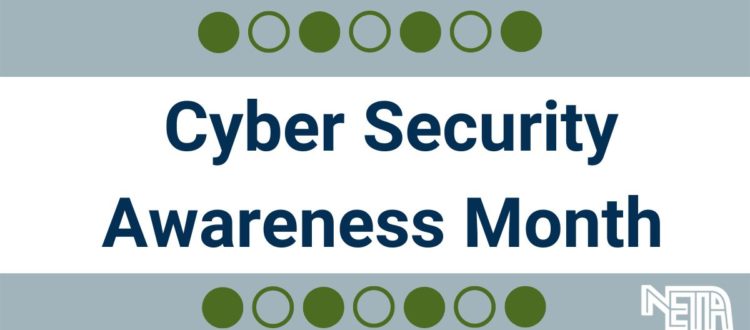Cyber Security Awareness Month
Written by: Kimberly Ingraham-Beck
Welcome to Cyber Security Awareness Month! My name is Kimberly Ingraham-Beck. I’m the Computer Science Teacher/Esports Coach at Gretna High School and the President of the Computer Science Teachers Association (Metro Omaha Chapter).
It is imperative that we do what we can to protect our personal information, especially as school employees. One way to do this is by having a secure password.
How Secure is My Password
One of my favorite tools is How Secure Is My Password? | Password Strength Checker. It is imperative that you check to see what the website does with the information you type BEFORE you share anything. In the case of this website, they do not store any of the information typed into their text fields.
Password Tips
Here are their tips on making secure passwords:
- A password should be 16 characters or more (most people use 8 or less, which is not as secure)
- Include a combination of letters, numbers, and characters.
- Do not share a password with any other account.
- Do not use personal information or info easily found on social media in a password.
- Do not use consecutive numbers or letters.
- Do not use the word password.
Creating Your Password
If you feel up for a few experiments, try typing in “password”. It is one of the Top 10 most used passwords according to the website and can be cracked instantly.
P@ssw0rd is more secure and follows all of the rules we’re told to do in order to have a secure password. It contains at least 1 capital letter, at least 1 special character, and at least one number. However, it would take only 8 hours to crack!
However, if we were to try, “passwordpassword”, the website says it will take 34 thousand years to crack. That is a drastic difference! So what is the reason that “passwordpassword” is so secure? It’s because of the length. Adding length to a password makes it exponentially more secure.
Why is that? It has to do with how long it takes computer programs to cycle through passwords. The longer the password, the more time it will take for the program to get to it. The requirements most companies make (at least 8 characters, at least 1 capital letter, number, and special character) are not necessarily what makes passwords secure. Adding those specific characters increases the amount of time for password crackers to get to it, but not as much as adding more characters.
In addition to secure passwords, you MUST have a different password for every account. This is extremely difficult for us as humans to do. We are not good at remembering lots of specific passwords for different websites. There are password managers that can help though.
Multi-Factor Authentication
Another extremely useful tool is Multi-Factor Authentication (MFA). This is a great method for helping prevent malicious attackers from getting into your accounts. When you have MFA enabled, even if a malicious actor has your credentials, they cannot get into your account without also having access to your phone/email. The chances of them having access to both is very small. My charge for you is to update and change your passwords. Aim to make your passwords longer than 16 digits, and start being secure!

